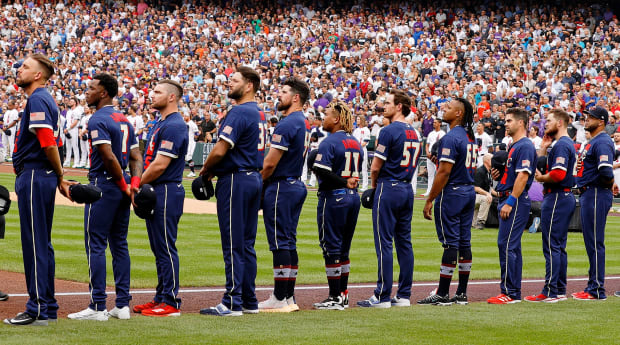A path to an agreement between Major League owners and players remains unpaved, but one obstacle was removed Monday. Players dropped their request to expand free agent eligibility, according to a source familiar with a face-to-face bargaining session held in New York.
The players had sought changes to three pillars of past collective bargaining agreements: free agent eligibility, arbitration eligibility and revenue sharing. The owners have told players those issues are non-starters.
The Feb. 16 scheduled start of spring training remains in question because of the glacial pace of negotiations and the lack of progress on core issues. There have been two bargaining sessions since the lockout began Dec. 2. The players’ proposal Monday came 11 days after the last session. One optimistic sign is that this session was held in person rather than by videoconference, which led to the two sides agreeing to meet again Tuesday. The session, attended by eight representatives, included what the source described as “good, spirited dialogue.”
The union previously had proposed a system that paved two paths to free agency: the current six years of service time as well as five years for those at least 30 ½ years old. For instance, under that proposal, Joey Wendle, 31, of the Marlins would be a free agent after the 2022 season with 5.088 years of service time rather than waiting until after the 2023 season, when he would have accrued six years of service time.
Owners were never on board with the concept of lowering the threshold to free agency, which has remained unchanged since its inception in 1976. It now appears free agency will stand as is. The average age of a free agent is 31.

Isaiah J. Downing/USA Today Sports
Dropping the age-based proposal places more emphasis on one of the union’s core concerns: getting more money to younger players, which figures to get more attention in talks.
Unlike the three pillars, it is the one area where there is conceptual agreement on change. The two sides are far apart on how to accomplish it. Eleven days earlier, owners proposed a formula to drive more money to all players between two and three years of service time, not just the 22% of that class, known as Super Twos, that qualify for the bargaining leverage of arbitration. Players rejected that proposal Monday without a counter. They like the arbitration system so much they would like to drop the eligibility to two years of service time.
Revenue sharing cuts remain a non-starter for the owners, even though the players Monday reduced cuts they are looking for in the flow of money from large revenue teams to smaller revenue teams. Owners have been telling players that they don’t have the votes to make any cuts in revenue sharing.
There was some discussion Monday but no movement on an expanded postseason. Owners remain in favor of a 14-team postseason while the players favor a 12-team field.







